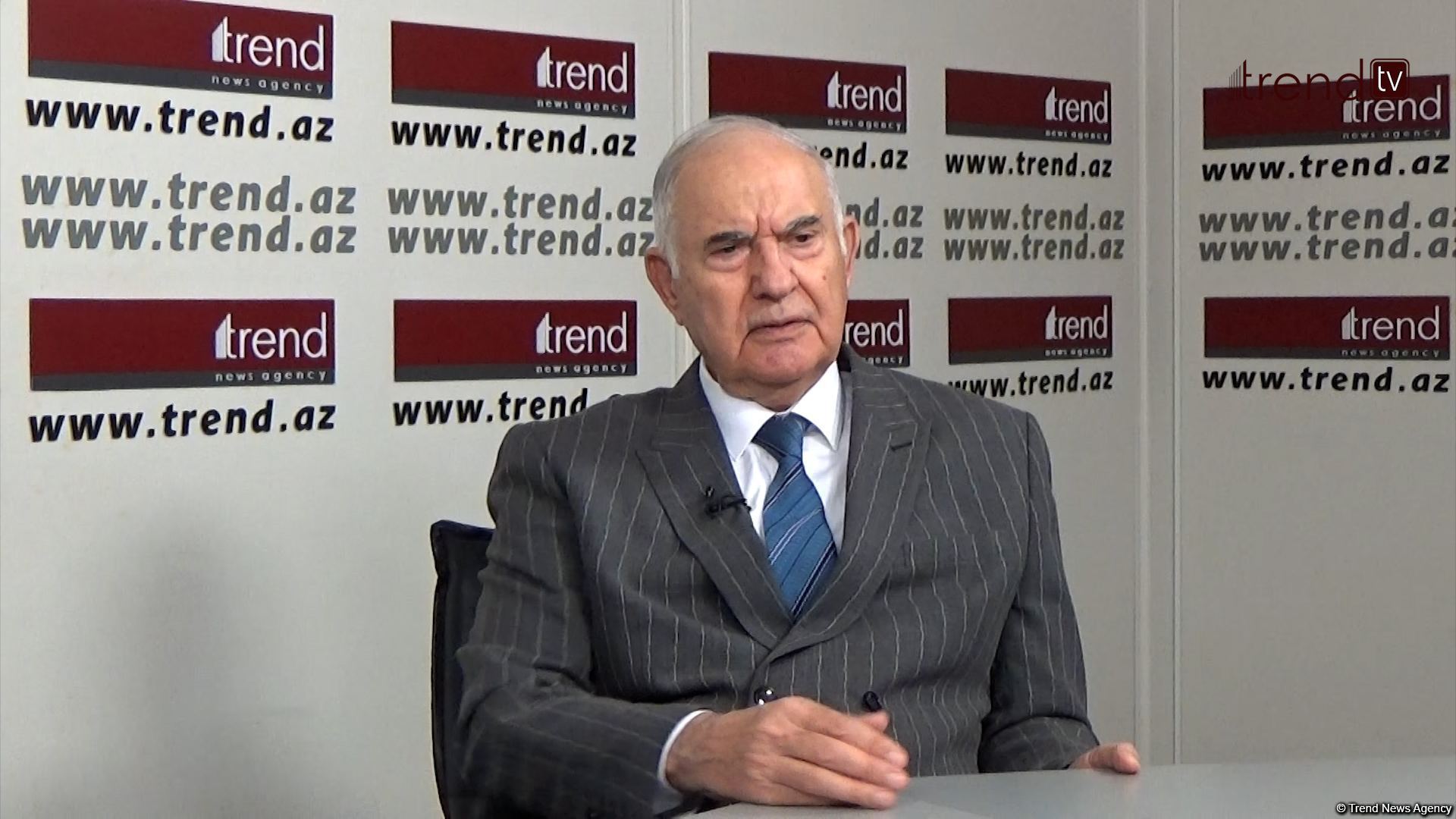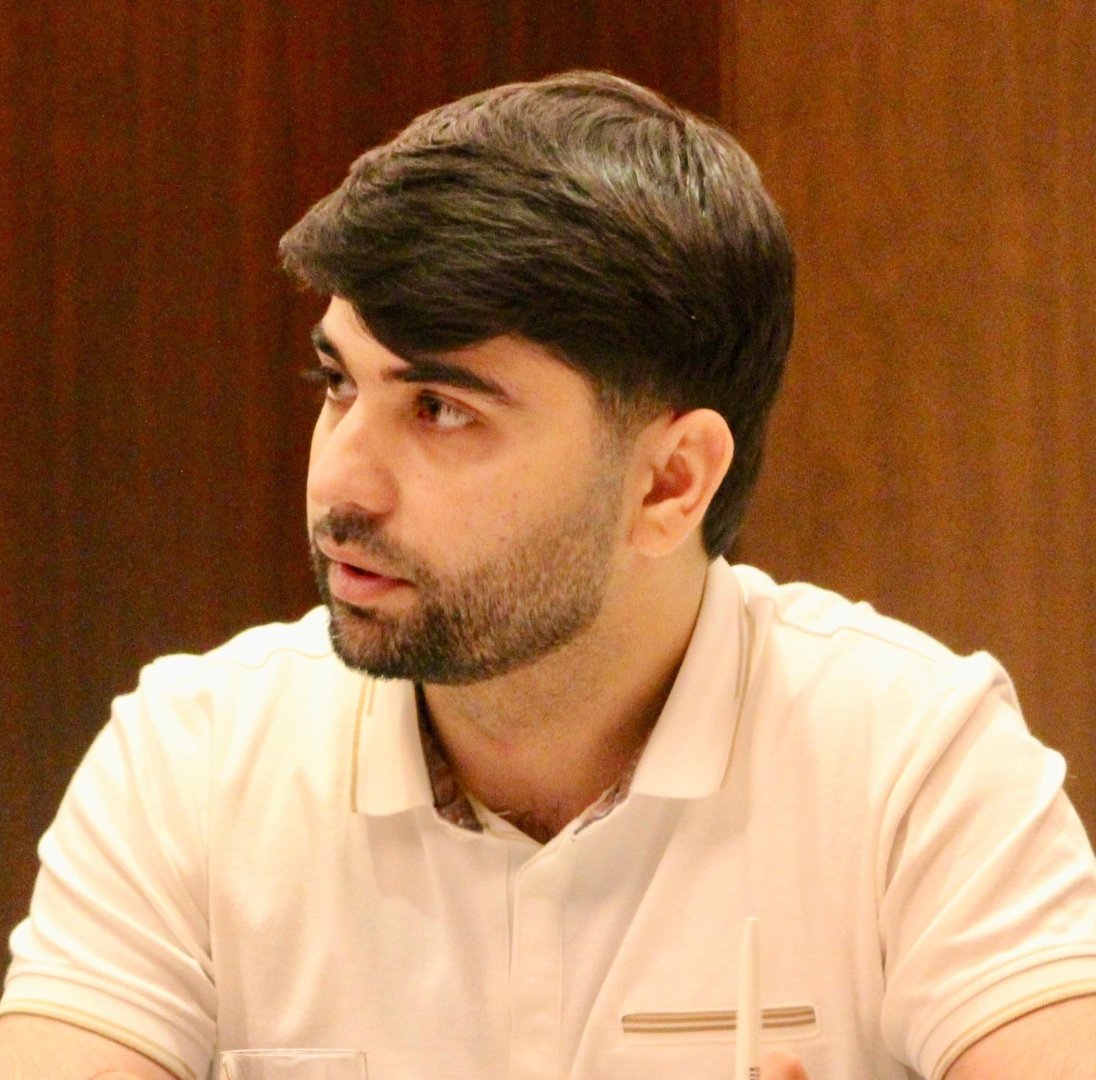BAKU, Azerbaijan, April 4. The relations between Azerbaijan and Germany have historical roots and are currently developing within the framework of cooperation that spans a wide range of areas, political analyst Azer Garayev told Trend.
According to him, the relationship between the two countries is being strengthened in political, economic, energy, social, and cultural spheres, and in particular, the visit of German President Frank-Walter Steinmeier to Baku on April 3, 2025, marks the beginning of a new phase in these relations.
"Political relations between Azerbaijan and Germany are actively developing not only within bilateral frameworks but also through various international platforms. Germany recognizes Azerbaijan's sovereignty and territorial integrity and is interested in strengthening ties with Azerbaijan within the framework of the European Union. Diplomatic relations between Azerbaijan and Germany were established in 1992, and high-level meetings have been held regularly since then. On April 3, 2025, during his visit to Baku, German President Frank-Walter Steinmeier held meeting with President of Azerbaijan Ilham Aliyev, during which they discussed the prospects of cooperation between the two countries, Azerbaijan's role in European energy security, and regional issues. Steinmeier's visit to Baku shows that Germany is highly interested in developing relations with Azerbaijan," he said.
Regarding economic cooperation between the two countries, Garayev noted that Germany is one of Azerbaijan's main trading partners.
"The annual trade turnover between the two countries reaches billions of euro. There is also close cooperation between Azerbaijan and Germany in the energy sector. As part of its green energy strategy, Azerbaijan intends to ensure the export of alternative energy resources to Europe, including to Germany. Azerbaijan's role in Europe's energy security has further strengthened with the increase in gas supplies, particularly within the framework of the Southern Gas Corridor project. Currently, sanctions against Russia are increasing, and new sources of energy are needed; Azerbaijan's role in this context is undoubtedly important for Europe. Europe understands this and continues to develop relations with Azerbaijan, organizing high-level visits and maintaining dialogue," he pointed out.
Garayev highlighted that during a joint press statement with Frank-Walter Steinmeier the previous day, President Ilham Aliyev spoke about the development of economic cooperation between the two countries: "The head of state said: 'The results achieved in the economic sphere are certainly reassuring for us. In January and February of this year, our trade turnover increased nearly threefold. The primary reason for this has been the increase in the volume of crude oil exported from Azerbaijan to Germany. Therefore, we believe that we should take more active steps in the coming years to diversify our trade, especially in the field of renewable energy, where German companies have extensive experience and Azerbaijan has a very large program and ambitious plans. We intend to increase the production of renewable energy to 6 gigawatts by 2030 through foreign investments, and this goal is quite realistic. Part of this volume will be exported to Europe.
The analyst noted that cultural ties between Azerbaijan and Germany are also developing dynamically.
"Special attention was also drawn to Frank-Walter Steinmeier's visit to Icherisheher and his familiarization with Azerbaijan's rich historical and cultural heritage during his visit to Baku. This can be seen as an indication of the importance that the President of Germany attaches to Azerbaijan's cultural heritage," he emphasized.
Regarding Germany's position on the former Karabakh conflict, Garayev pointed out that while official Berlin recognizes Azerbaijan's territorial integrity, it has long taken a more neutral stance on the issue of conflict resolution.
"After Azerbaijan fully restored its sovereignty following the Second Karabakh War in 2020, Germany stated that it supports peace and stability in the region. However, from time to time, there has been criticism from certain German political circles regarding Azerbaijan's just position. However, Frank-Walter Steinmeier, in his recent press statement, clarified Germany's position on this matter. The German President said, "We know and recognize that the Karabakh region is Azerbaijani territory." This shows that Germany is accepting the new realities and the just position of Azerbaijan," the analyst reminded.
He noted that President Ilham Aliyev and President Frank-Walter Steinmeier also discussed the peace agreement project between Azerbaijan and Armenia.
"In response to a question from a DPA news agency correspondent, President Ilham Aliyev mentioned that he had sufficiently informed his counterpart on this issue and thoroughly explained Azerbaijan's position on this matter. The head of state said: " Real negotiations essentially started about a year ago. To date, the wording of the peace agreement consisting of 17 paragraphs has been fully agreed upon. Azerbaijan has not put forward any additional conditions here. Our conditions are clear to Armenia and they are not new. We have been putting forward these conditions for a long time. However, we have not received any serious response from the Armenian side to date. What exactly are they? First, the OSCE Minsk Group must be dissolved. The logic behind this is that the OSCE Minsk Group, which was established in 1992, was mandated to resolve the Karabakh conflict. Azerbaijan has resolved the Karabakh conflict itself – on the basis of the UN Charter and within the framework of international law. Since the conflict has been resolved and Armenia officially recognizes Karabakh as Azerbaijani territory, there are no grounds for the de jure operation of the OSCE Minsk Group. This group was not operating de facto anyway. The fact that Armenia does not agree to this raises a legitimate suspicion in us. I wonder why. Does Armenia perhaps want to put forward territorial claims against us again? Their rapid armament, the acquisition of lethal weapons, and the fact that France, their main supporter in this, incites them to new provocations increase these doubts, of course. So this is the first issue.
The second issue is related to the constitution of Armenia. The constitution of Armenia contains a reference to the act of independence of Armenia. It is an integral part of the constitution. There is a provision on the unification of the legal and historical territory of Azerbaijan with Armenia, and this is considered an explicit territorial claim against us. Therefore, the removal of this clause from the constitution of Armenia is our legitimate demand. Once these two conditions are met, there will be no obstacle to signing the peace treaty. As they say, the ball is in Armenia's court. If Armenia is genuinely interested in signing the peace treaty, it has to accept these two legitimate conditions of Azerbaijan."
According to Garayev, President Steinmeier also expressed his views on the matter.
"He noted that anyone who has observed this conflict, its escalation and the suffering has caused, as well as the wars that have caused so many victims over the past three decades, can understand that it takes a lot of time and effort to resolve such a conflict, as well as restore mutual trust between the parties. The German President said, " I mentioned this earlier, and I know that great efforts are required after such conflicts. I also respect these efforts because the wording of the agreement has already been developed. It is a huge task to reach an agreement at this time. I do hope that, in addition to that, there will also be agreement on the conditions President Aliyev has just mentioned. In my opinion, they should not become an obstacle to achieving lasting peace between Azerbaijan and Armenia. Let me repeat that there is a very important determination, an important moment has arrived, and it would be irresponsible to miss it. It is necessary to remember that the experience of both Germany and Europe shows that the preparation of the agreement and its implementation are the first step. Then, for the agreement to actually come into force, for it to turn into a true reconciliation, it takes several generations. This is a very long process. The implementation of a reliable reconciliation will require a lot of time from both countries and people. Therefore, it is impossible to ignore the fact that this reconciliation will take a long time. But the first step is the preparation, signing, ratification, entry into force, and implementation of the agreement. Then other problems can be solved. I do hope this will happen soon."
Speaking about the future of Azerbaijan-Germany relations, the analyst noted that the prospects are quite broad.
"The expansion of cooperation is expected, particularly in the fields of energy, 'green' technologies, industry, and education. Azerbaijan is a reliable partner for Germany in the region, and these relations may deepen based on mutually beneficial cooperation. Frank-Walter Steinmeier’s visit to Baku, his meeting with President Ilham Aliyev, and his interest in the country’s cultural heritage will make an important contribution to the development of ties between the two countries. Azerbaijan’s relations with Germany are of particular importance not only within the framework of bilateral cooperation but also in the context of relations with the European Union. In this regard, ties between the two countries may become even stronger in the future and rise to the level of a strategic partnership," Garayev concluded.
Stay up-to-date with more news on Trend News Agency's WhatsApp channel







